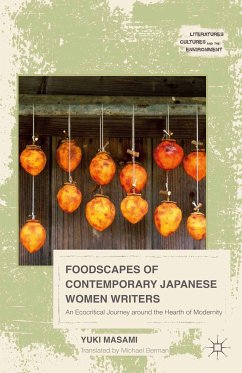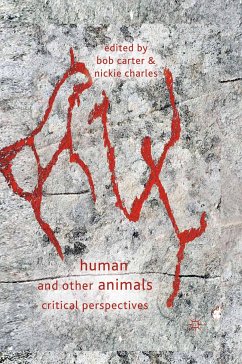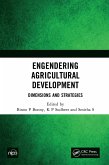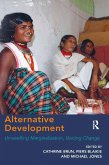Dieser Download kann aus rechtlichen Gründen nur mit Rechnungsadresse in A, B, BG, CY, CZ, D, DK, EW, E, FIN, F, GR, HR, H, IRL, I, LT, L, LR, M, NL, PL, P, R, S, SLO, SK ausgeliefert werden.
"A fine example of fourth-wave ecocriticism in its focus on both the discourse and the material nature of food, Masami's book also reminds me of Ishimure's own workin its multidimensional, many-voiced texture. Readers will appreciate how the book so gracefully, so lightly, introduces Japanese environmental history, food culture, gendered experience, and ideas of sustainability - in addition to sharing the words and ideas of several major contemporary writers. This work also shows the evolution of Yuki's scholarship from soundscapes to foodscapes." - Scott Slovic, Professor of English, University of Idaho, USA and co-editor of Numbers and Nerves: Information, Emotion, and Meaning in a World of Data
"Yuki Masami has written a nuanced book that theorizes cultures of eating. It is based on her probing interviews with key contemporary women writers in Japan. Foodways, women writing, Japan: it engages at all three of those levels. It provides new approaches to talk about foodways in Japan and also offers new vocabulary for thinking globally on a range of ecocritical issues." - Doug Slaymaker, Professor of Japanese, University of Kentucky, USA
"Around the Hearth of Modernity is a work of profound sympathy, critical intelligence, and ethical engagement that explores four contemporary Japanese women writers as they reflect on their lifelong relationship to food, writing, politics, and the daily practice of living. With an innovative structure that interweaves oral interviews and interpretive essays, Yuki's elegant study is a model of ecocritical practice at its best, theoretically sophisticated yet accessible to the general reader. A major contribution to environmental and food studies, this book is a must read for all of us who wish to understand our often ambivalent relationship to food and the natural world that sustains us." - David T. Bialock, Associate Professor of Japanese Literature, University of Southern California, USA









